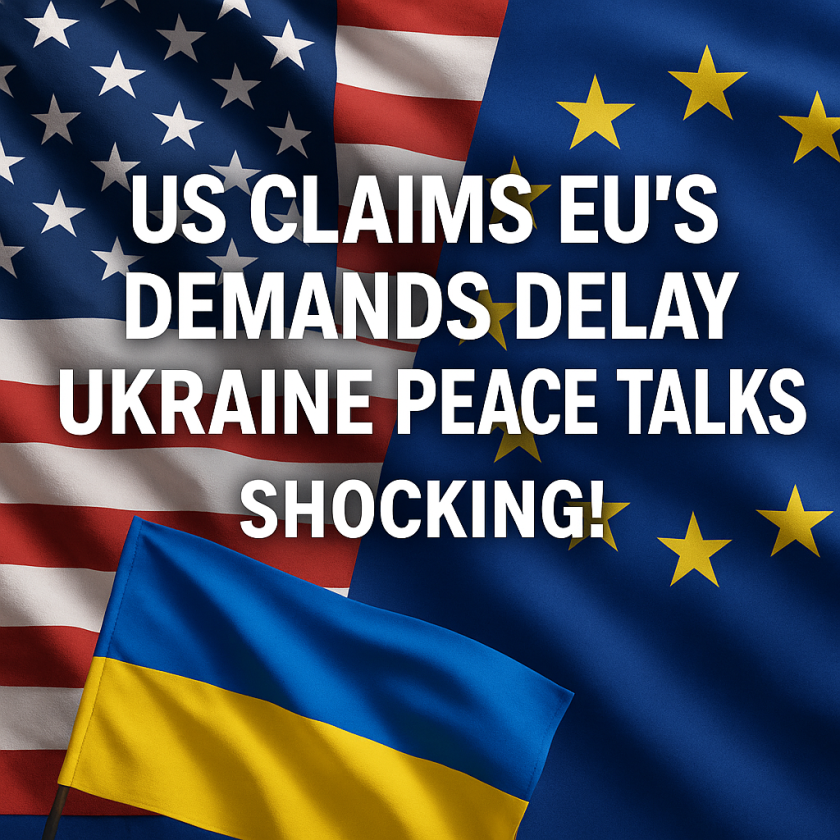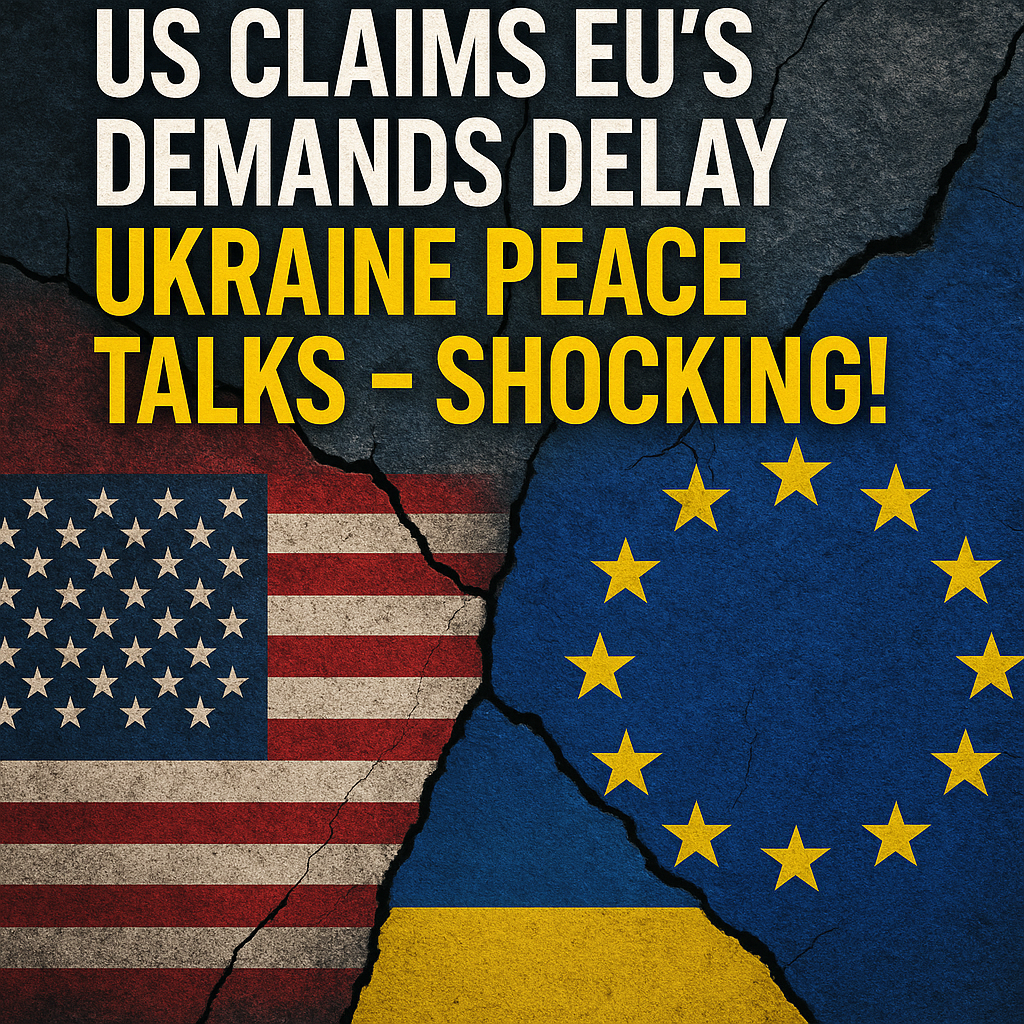US Claims EU’s Demands Delay Ukraine Peace Talks – Shocking!
US Claims EU’s Demands Delay Ukraine Peace Talks
In recent discussions surrounding the ongoing conflict in Ukraine, the United States has claimed that demands from the European Union (EU) are causing delays in peace talks. This assertion has sparked considerable debate among analysts and policymakers, revealing a complex web of geopolitical interests and priorities.
Understanding the Dynamics of Peace Talks

As the humanitarian crisis in Ukraine deepens, the urgency for a resolution grows. However, the situation is complicated by differing perspectives on what a peace agreement should entail.
The US Perspective
The United States, a significant ally of Ukraine, argues that the EU’s “unreasonable expectations” are hindering progress toward negotiations. An article from RT elaborates on this claim, indicating that the US administration believes the EU’s insistence on certain terms is unrealistic and may prolong the conflict. Senior US officials have hinted at a willingness to support a peace process that might not fully align with the EU’s goals, showcasing a potential rift in strategy.
The EU’s Position
On the other hand, EU leaders maintain that their demands are not only justified but crucial for ensuring that any peace deal is sustainable. Al Jazeera has reported statements from EU officials who argue that it’s essential for Ukraine to maintain its sovereignty and territorial integrity in any settlement. These leaders perceive their role as not just mediators but as strong advocates for Ukraine, ensuring that the lessons of past peace agreements, which have failed to bring lasting stability, are not repeated.
Differing Views Among Analysts
The discourse surrounding the peace talks is not black and white; various analysts weigh in, revealing differing opinions on how much the EU’s demands are truly impacting negotiations. Some experts argue that while the EU’s conditions may complicate matters, the primary obstacle to a resolution lies in the lack of trust and mutual understanding between the involved parties. Others suggest that the rift between US and EU priorities could potentially undermine a cohesive strategy towards a peaceful resolution.
Key Areas of Contention
Several specific points of contention highlight the complexity of these discussions:
– Territorial Integrity: A major sticking point has been the recognition of Ukraine’s territorial sovereignty. The EU emphasizes that any settlement must clearly maintain Ukraine’s borders as recognized internationally.
– Security Guarantees: The US has indicated a willingness to offer certain security guarantees to Ukraine, which could influence the negotiation landscape. In contrast, some EU officials are cautious, expressing concerns that any such guarantees might be inadequate or insincere.
– Military Support: The ongoing military support from both the US and EU complicates the narrative. While the US is focused on maintaining military aid to Ukraine as leverage in negotiations, the EU is advocating for a more diplomatic approach to facilitate talks.
The Future of Negotiations
With the backdrop of these tensions, the way forward remains uncertain. The claims made by the US regarding the EU’s role invite scrutiny but also underscore the importance of unity among allies. Both entities must find a way to balance their strategies and objectives without alienating either party, which could further destabilize the situation in Ukraine.
What Lies Ahead?
As discussions continue to unfold, several possibilities could arise:
– Increased Collaboration: Despite current disagreements, there is potential for the US and EU to rethink their approach and devise a combined strategy that addresses both sides’ concerns.
– Third-Party Mediation: In light of the stalled negotiations, third-party countries could play an intermediary role, helping to bridge the gap between US and EU demands and enhancing the likelihood of dialogue.
– Humanitarian Focus: Beyond military and political discussions, a renewed focus on humanitarian aid and support for civilians affected by the conflict could also serve as a starting point for rebuilding trust.
In conclusion, while the US claims that EU demands are delaying peace talks, the reality is multifaceted. Each party brings valid concerns to the table, and finding common ground will be essential for a future resolution. The upcoming months will be critical in shaping the trajectory of both discussions and the conflict itself, highlighting the interconnectedness of international diplomacy in turbulent times.






































